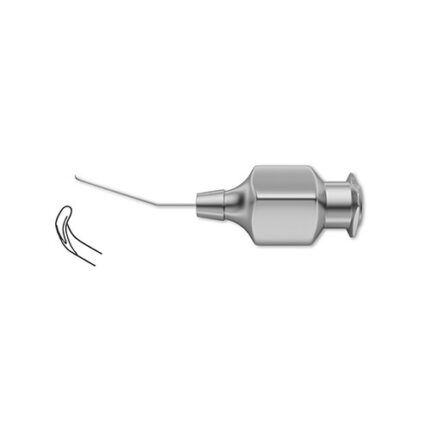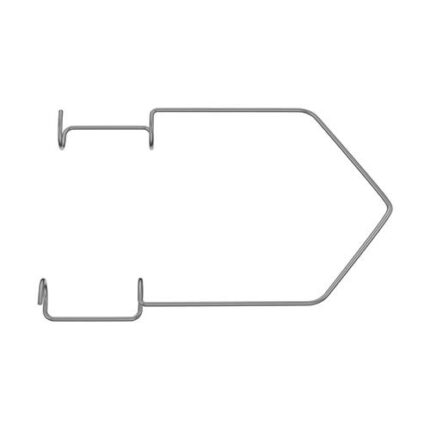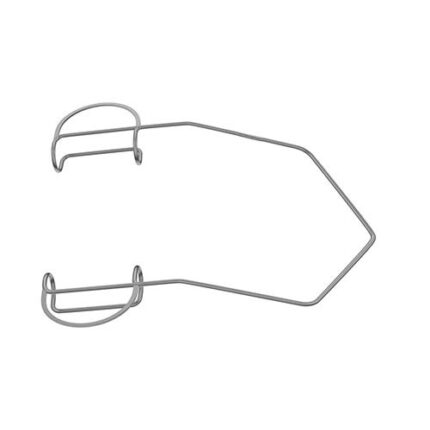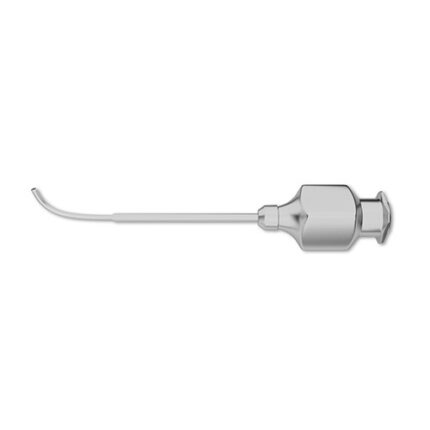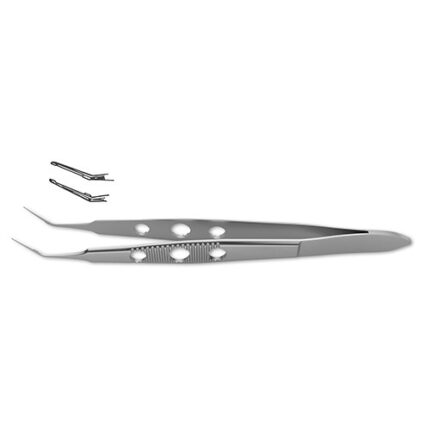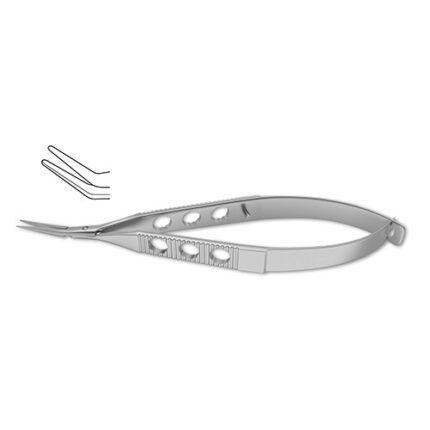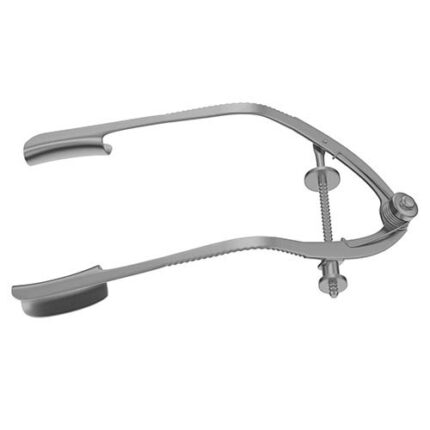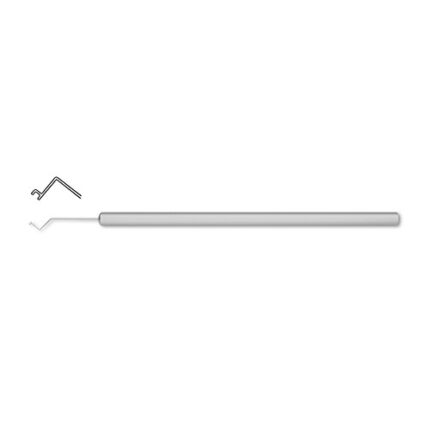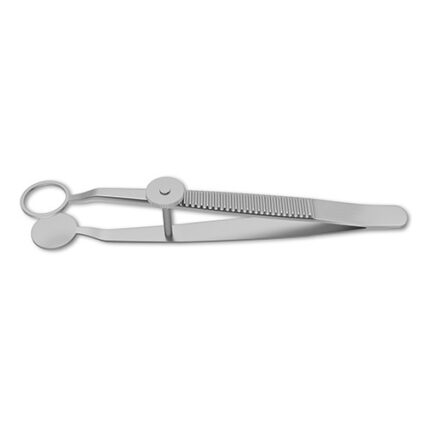OPHTHALMOLOGY
Kratz Lens Manipulator Cannula
SKU:
TT-SI-2693
Kratz-Barraquer Speculum – Open Blades
SKU:
TT-SI-6845
open blades Kratz-Barraquer Eye Speculum is a commonly used tool in visualizing the ophthalmologic surgical field. The speculum features open wire blades for atraumatic spreading of the lids. The variable compression of the spring allows the surgeon to adjust the degree of spreading. Both pediatric and adult sizes are available depending on surgical need.
Kratz-Barraquer Speculum – W/ Wings
SKU:
TT-SI-6139
w/ wings Kratz-Barraquer Eye Speculum is a commonly used tool in visualizing the ophthalmologic surgical field. The speculum features open wire blades for atraumatic spreading of the lids. The variable compression of the spring allows the surgeon to adjust the degree of spreading. In addition, the speculum features wings for increased control during lid retraction.
Kuglen Iris Hook & Lens Manipulator
SKU:
TT-SI-5257
straight shaft, 0.5 mm hook, blunt, 4-3/4" (12.0 cm) Kuglen Iris Hook & Lens Manipulator is a unique tool in cataract procedures. The tool may be used to pull the delicate iris tissue to expose the deeper lens capsule. In addition, the instrument is also meant to maneuver the native lens into a desirable position of phacoemulsification.
Kuglen Iris Hook & Lens Manipulator – Push-Pull Pattern
SKU:
TT-SI-7333
push-pull pattern, 4-1/2" (11.5 cm) Kuglen Iris Hook & Lens Manipulator is a multipurpose tool used in a variety of cataract procedures. The rounded button end is delicate enough to retract iris tissue to expose the anterior capsule of the lens. In addition, the instrument can be used to maneuver the lens into an ideal position for retraction. Both straight and angled models are available depending on physician preference.
Lacrimal Cannula
SKU:
TT-SI-3896
1.2" (3.1 cm) shaft w/ 2.0 cm reinforced, 23-gauge Lacrimal Cannula is an extremely useful tool in treating tear duct obstructions. The cannula may be used to investigate blockage of lacrimal gland damage or more frequently, obstruction of the nasolacrimal duct. The slender profile of the cannula allows access to the small entrances of the duct. Two different working lengths are available with the cannula depending on surgical preference.
Lacrimal Cannula – Reinforced Shaft
SKU:
TT-SI-9225
1.2" (3.1 cm) shaft w/ 2.0 cm reinforced, 23-gauge Lacrimal Cannula is an extremely useful tool in treating tear duct obstructions. The cannula may be used to investigate blockage of lacrimal gland damage or more frequently, obstruction of the nasolacrimal duct. The cannula features a reinforced shaft to prevent bending and kinking during the procedure.
Lambert Chalazion Forceps
SKU:
TT-SI-4121
smooth blade, locking thumb screw, 3-1/2" (8.9 cm) Lambert Chalazion Forceps are a commonly used tool in diseases of the eyelid. The forceps are meant to expose a chalazion or other cysts of the lid. The smooth ring blade surrounds the cyst and tightened so the lid is everted. This model also features a locking thumb screw designed to free the surgeon's hands if desired. Two ring sizes are available with the forceps depending on surgical preference.
Lambert Sleeve Spreader
SKU:
TT-SI-4892
smooth 90 degree jaws, 4-1/8" (10.5 cm) Lambert Sleeve Spreader is a specialty tool used primarily for retinal detachment procedures. The spreader is used to stretch the silicone sleeve placed around the eyeball to bring the wall and the detached retina closer. The smooth 90 degree jaws allow for adjustable tension to accommodate various patient sizes.
Lancaster Speculum
SKU:
TT-SI-2744
blades 15.0 mm, spread 35.0 mm, 3-1/8" (8.0 cm) Lancaster Speculum is a commonly used tool for visualizing the ophthalmologic surgical field. The solid blades are designed for more controlled retraction of the lids and minimize the chance of tissue obstruction. In addition, an adjustment screw is provided to increase control during the procedure.
Leiske-Smith Lens Pusher
SKU:
TT-SI-4615
Lester Fixation Forceps
SKU:
TT-SI-9887
3-3/4" (9.5 cm) Lester Fixation Forceps are ideal for holding in place tissue during ophthalmologic procedures. The teeth on the forceps are ideal for handling and fixing the conjunctiva and episcleral tissue, or holding the globe in place. Both 1x2 or 2x3 models are available depending on surgical preference.

